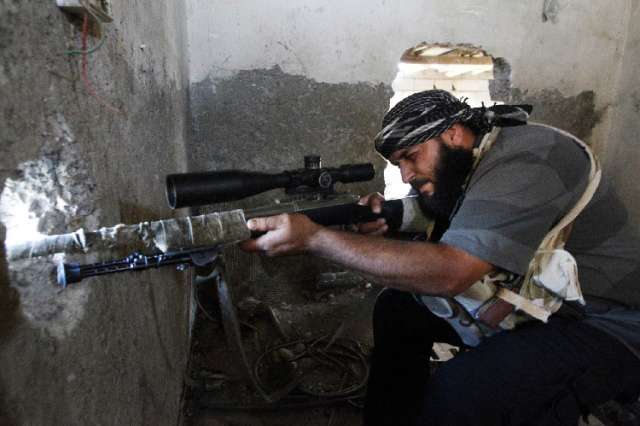The term of former Lebanese President Michel Suleiman ended May 25, and rival political blocs are still divided over a new leader.
Lebanon's institutional system, based on the National Pact of 1943, provides that the office of the president be occupied by a Maronite Catholic, the prime minister a Sunni Muslim and the speaker of the parliament a Shiite Muslim.
In a statement June 19 at the conclusion of their annual synod at the patriarchal seat of Bkerke, the bishops said they completely support the views expressed by Cardinal Bechara Rai, Maronite patriarch, about the presidential stalemate, and "his tireless efforts to push (parliamentary) members to perform their duty" and vote.
"The stance by some parliamentarians to refrain from entering the parliament and cast their ballot in the presidential election ... is unacceptable and places the country at great risk, particularly amid the regional developments that threaten to change the map of the Middle East and dismantle the states, which will have repercussions on Lebanon," the statement said.
"The absence of a president ... represents an absence of a state, and it is a danger to the unity of the country as well as its security and economy."
Addressing their concerns about the war in Syria and Iraq, the bishops urged people to "break the cycle of violence that is threatening their fate, and work on resolving the conflicts in peaceful ways until they reach a comprehensive reconciliation. Everyone should recognize the rights of others and build their societies on equal citizenship."
They denounced "what innocent people are suffering from, Christians and non-Christians alike, as a result of the conflicts."
The Maronite bishops also demanded the release of two Syrian bishops — Syriac Orthodox Metropolitan Gregorios Yohanna of Aleppo and Greek Orthodox Metropolitan Paul of Aleppo — kidnapped in April 2013, as well as the release of all detained priests.
In their statement, the bishops praised the Catholic charitable agency Caritas Lebanon for its efforts to serve the needy in Lebanon and encouraged the international community to show solidarity with Syrian refugees "in the hope of a speedy return" to their homeland. Currently more than 1.5 million Syrian refugees — equal to at least one-quarter of Lebanon's resident population — are living in Lebanon.
The bishops noted Patriarch Rai's visit to the Holy Land in May, in conjunction with the visit of Pope Francis, in which the patriarch met with former members of the South Lebanon Army, the Lebanese militia that fought alongside Israel during its occupation of South Lebanon and fled to the Jewish state following Israel's withdrawal in 2000.
The patriarch's visit "gave hope to a resolution to the issue of the Lebanese exiled in Israel" and showed that "the spirit of reconciliation between the country's citizens is possible," the bishops said.


